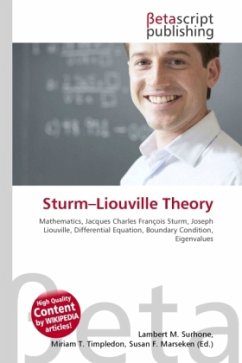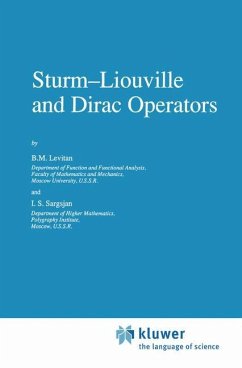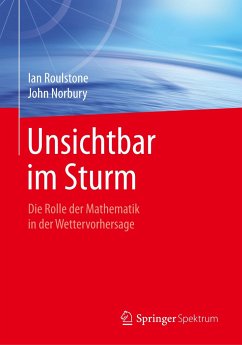
Sturm-Liouville Theory
Versandkostenfrei!
Versandfertig in 6-10 Tagen
26,99 €
inkl. MwSt.

PAYBACK Punkte
13 °P sammeln!
High Quality Content by WIKIPEDIA articles! In mathematics and its applications, a classical Sturm?Liouville equation, named after Jacques Charles François Sturm (1803?1855) and Joseph Liouville (1809?1882), is a real second-order linear differential equation. Such values of ? when they exist are called the eigenvalues of the boundary value problem defined by (1) and the prescribed set of boundary conditions. The corresponding solutions (for such a ?) are the eigenfunctions of this problem. Under normal assumptions on the coefficient functions p(x), q(x), and w(x) above, they induce a Hermiti...
High Quality Content by WIKIPEDIA articles! In mathematics and its applications, a classical Sturm?Liouville equation, named after Jacques Charles François Sturm (1803?1855) and Joseph Liouville (1809?1882), is a real second-order linear differential equation. Such values of ? when they exist are called the eigenvalues of the boundary value problem defined by (1) and the prescribed set of boundary conditions. The corresponding solutions (for such a ?) are the eigenfunctions of this problem. Under normal assumptions on the coefficient functions p(x), q(x), and w(x) above, they induce a Hermitian differential operator in some function space defined by boundary conditions. The resulting theory of the existence and asymptotic behavior of the eigenvalues, the corresponding qualitative theory of the eigenfunctions and their completeness in a suitable function space became known as Sturm?Liouville theory. This theory is important in applied mathematics, where S?L problems occur very commonly, particularly when dealing with linear partial differential equations that are separable.












